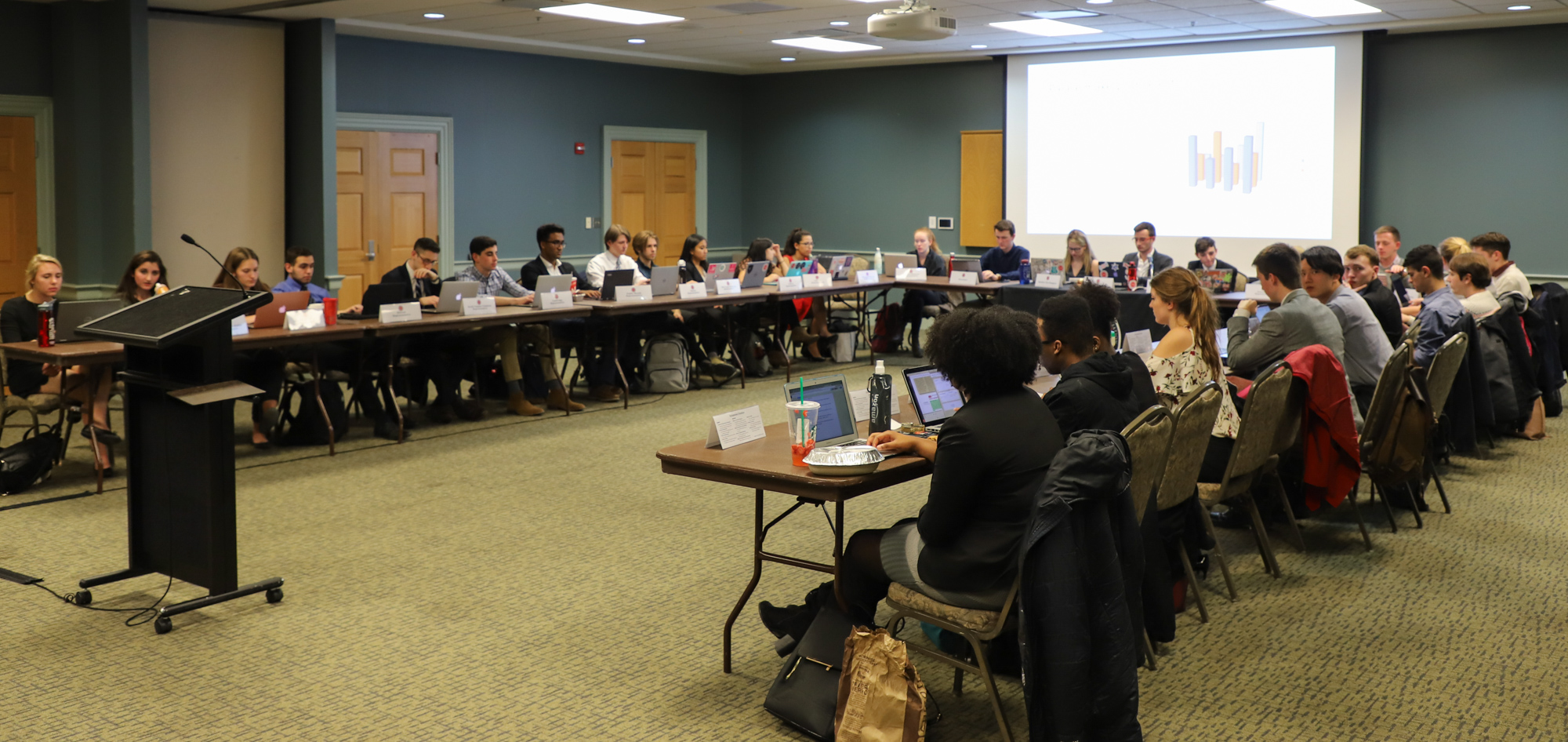After proposing an amendment requiring newly elected SGA legislators to serve in their elected positions for five months before they could be appointed to director positions, the Constitution and Bylaws Committee threw out the measure Tuesday night.
Ajay Mahesh, the sponsor of the bill, said this decision boiled down to concerns over enforcement, adding that even with the mandatory five-month period, there would have been nothing to stop legislators who aspired to be an executive branch member from taking on associated duties under the table, effectively circumventing the measure.
“They can do all the work of a director and just not be one on paper,” he said.
[Read more: UMD SGA launches transportation stipend for students with off-campus internships]
Noah Eckman, the Student Government Association’s engineering representative and a member of the committee, opposed the amendment, arguing its unenforceable wording was problematic.
“It wouldn’t be a barrier to any president who wanted to get around it, and would only be a problem in some cases,” Eckman said. “I could just tell them, ‘Oh yeah, you’re going to get appointed come September. Start working on it now.’ That rule wouldn’t have fixed anything, in my opinion.”
The lack of such an amendment has caused a shortage of legislature in the past, because the Student Government Association president is permitted to appoint his or her own cabinet.
SGA members can’t serve on both the legislative and executive branches at the same time, said the group’s president, AJ Pruitt, but when the president chooses their cabinet from the ranks of SGA legislators, it can create a staffing deficit.
Currently, SGA legislators chosen for the cabinet can move directly from being elected by their constituencies to serving in the executive branch without ever representing the community that elected them.
“It’s something that in years past, people have had to fill a whole third to half of a legislature, because they pulled so many people off to serve in the executive [branch] and then have to appoint people to serve in the legislative position,” said Pruitt, a senior economics and government and politics major.
[Read more: Some UMD students want reduced punishment for campus drug policy violations]
Just because the legislation didn’t pass this time, doesn’t mean it’s out of the running forever. Pruitt said if the SGA was inclined, it could bring the amendment back when they reviewed the bylaws in the final meeting of this semester.
Pruitt said implementing the amendment would have gotten more students involved in the SGA, as it would have forced the executive branch to draw cabinet members from other pools of students.
While the amendment didn’t come to a vote, the SGA voted to approve the rest of the motion Wednesday night, creating new Elections Commission positions with the goal of bolstering student outreach and participation after seeing low turnout in last year’s elections.
The “VOTE Act” amends former SGA bylaws to create five new election commissioners and a post-election open forum that will allow other student groups to communicate with the newly voted-in members.
There will be one head commissioner and four deputy commissioners, who each lead publicity, campaigning, candidacy and election education, respectively.
Mahesh said it was important to get more students to run for SGA positions and vote in elections so the legislation the body passes would be more representative of student interests and needs. Less than 10 percent of the student body voted in the SGA election last spring.
“When students don’t vote in SGA [elections], we have uncompetitive elections,” Mahesh said.



